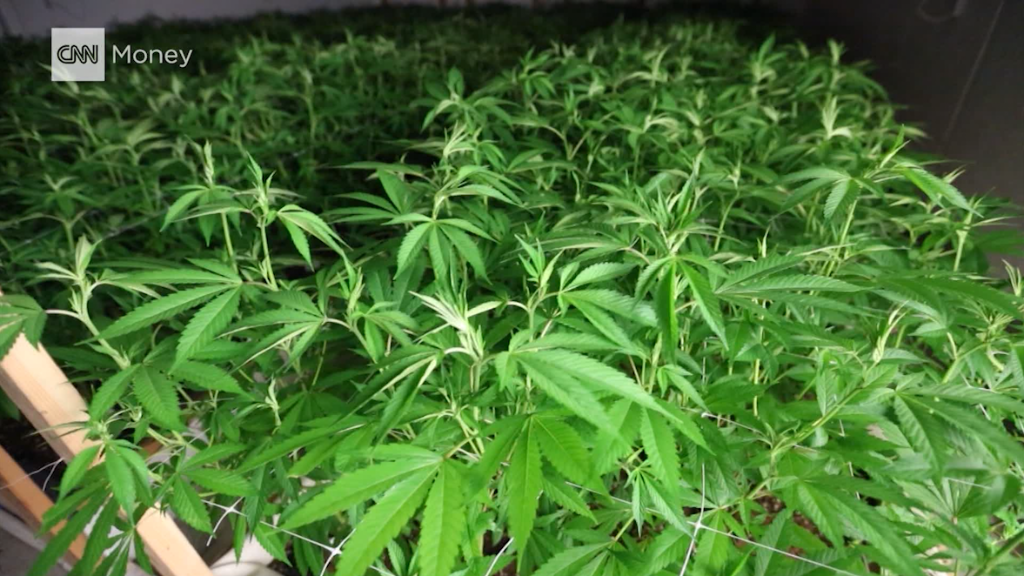
The marijuana market is about to boom.
Voters in four states approved legal recreational pot on Tuesday. Four more states expanded access to medical marijuana.
All told, it could expand the national market to $21 billion by 2020, according to New Frontier Data, which partnered with the marijuana industry organization Arcview Group. That is up from $5.7 billion last year and an expected $7.9 billion this year.
"Despite broad political division in the country, cannabis seems to be the one factor that has drawn universal support," said John Kagia, executive vice president for industry analytics at New Frontier Data. "This has exceeded the expectations of even the most Pollyanna-ish industry participants."
California, Massachusetts, and Nevada approved recreational pot on Tuesday. Maine voters also supported legalization by a slim margin, though opponents have called for a recount. Recreational marijuana is already legal in Colorado, Oregon, Washington, Alaska and Washington, D.C.
Three more states -- Arkansas, Florida and North Dakota -- approved medical marijuana, and voters in Montana removed restrictions blocking the creation of a market there. Medical marijuana was already legal in 26 states.
The four states that legalized recreational weed stand to reap big benefits in sales and taxes.
Related: How much tax revenue do states get from legal weed?
California alone, the most populous state in the union, could bring in more than $1 billion in annual tax revenue, based on a forecast from the Tax Foundation. But it would take several years to get to that point.
Annual sales of weed in California could reach $7.6 billion by 2020, according to New Frontier Data --$4.3 billion for recreational and $3.3 billion for medical. That matches the $4.3 billion recreational sales estimate from the Tax Foundation.
Medical marijuana has been legal in California for 20 years, and generates about $50 million in annual tax revenue.
In addition, Kagia said legalization will create "income opportunities for businesses that do not touch the plant but serve the needs of the industry," like financial services, security, accounting, transportation and marketing.
It takes time to establish a market after voters approve marijuana. Colorado voters were the first to legalize recreational marijuana in 2012, but the dispensaries only opened in 2014.
Marijuana is still illegal in the eyes of the federal government. The Drug Enforcement Agency classifies marijuana as a Schedule 1 controlled substance, the same as heroin.
--Correction: An earlier version of this story incorrectly described the relationship between New Frontier Data and Arcview.


